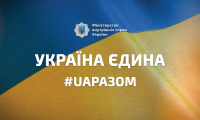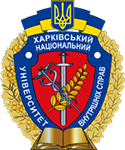Kremenchuk Flight College of KNUIA Public Library staff participated in the IV International Conference
On 22–23 October 2025, staff of the Public Library of the Kremenchuk Flight College of KNUIA took part in the IV International Conference ‘Open Science and Innovation,’ which was held online with simultaneous translation into English.
The event was aimed at discussing key issues of research infrastructure development, open access to scientific information, reforming the research evaluation system, academic integrity, and adapting national policy to European Union standards in the field of open science.
On the first day of the conference (22 October), presentations were given by leading experts from Ukraine, as well as from Germany, the Czech Republic, Spain, the United States, and the United Kingdom.
The participants discussed prospects for the development of Ukraine's research infrastructure, reform of the scientific results evaluation system, the role of libraries in ensuring open access and integrity, as well as copyright issues in the era of open science.
Of particular interest to representatives of the library community was the panel ‘Copyright in the Age of Open Science,’ where Liubov Maidanyk (UKRNOIVI) revealed important aspects of the balance between copyright and open access. This topic proved to be extremely relevant and useful for the further work of libraries in terms of lawful use of scientific materials. Also noteworthy were presentations on the reform of scientific journals, Creative Commons licensing, the use of artificial intelligence for the analysis of scientific literature, and the implementation of FAIR principles and innovative EOSC services.
The second day of the conference (23 October) covered the topics of innovative development, opening new horizons for scientific cooperation, and the experience of the European projects Horizon and DANUBIUS-RI. The speakers highlighted the importance of open ideas in the international library community and the role of Ukrainian scientific institutions in forming a single space for open research.
The library's staff participation in the conference provided an opportunity to deepen knowledge about current trends in open science, learn about the experience of leading European universities and libraries, and obtain practical recommendations for implementing open access policies in scientific activities.






